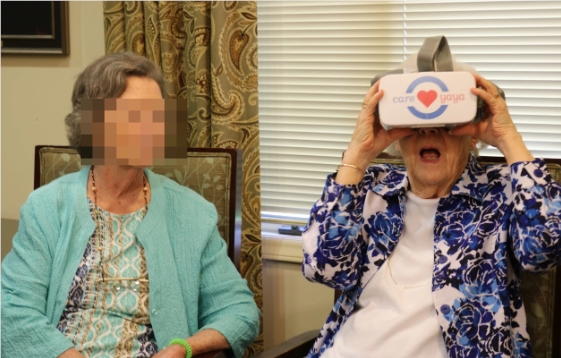CareYaya Health Technologies has launched MedaCareLLM, a large-scale language model based on AI, a technology integrated into smart glasses designed to help patients with Alzheimer's disease and dementia improve their lives. Through facial and object recognition, MedaCareLLM can help in real time, such as identifying familiar faces and providing voice prompts to remind patients to take medication, thereby improving the patient’s quality of life and reducing the burden on caregivers. This technology not only has practical application value, but more importantly, CareYaya hopes to promote Alzheimer's treatment research by collecting diverse data, especially focusing on the elderly population of black people, to make up for the shortcomings of existing research.

When patients wear these smart glasses, AI can recognize familiar faces. After identification, the system will convert the person's information into a prompt, which will be directly transmitted to the wearer's ear through bone conduction headphones or hearing aids. This feature helps patients overcome confusion and embarrassment caused by memory loss, making it easier for them to identify family and friends. In addition, smart glasses can read information about the medicine bottle and remind patients when to take the medicine, provide guidance on dosage and timing of medication, reduce the risk of taking the medicine by mistake, and reduce the stress of caregivers.
CareYaya also develops advanced AI models by collecting video, audio and visual data taken by smart glasses to better identify and track patients’ disease progression and daily diet patterns. This technology is designed to improve the quality of life for people with dementia.
According to the Alzheimer's Disease Association, there are currently nearly 7 million patients in the United States, and this number is expected to increase to nearly 13 million by 2050. Coupled with this, the health and long-term care costs for dementia patients are expected to reach $360 billion in 2024 and close to $1 trillion in 2050.
Neal K. Shah, CEO and co-founder of CareYaya Health Technologies, said they hope to fill important gaps in dementia research, especially among the older black population. Black elderly people have twice as many chances of Alzheimer's disease as whites, and are currently relatively inadequate in clinical trials and studies. He noted that MedaCareLLM will help improve this situation by providing a more representative data set to drive research on treatment for Alzheimer's disease.
MedaCareLLM's research and development is supported by Johns Hopkins University's Artificial Intelligence and Technology Cooperation Laboratory, AgeTech Collaborative of the American Association of Retirees (AARP), and the National Institutes of Health. This technology, as part of the OpenMind project, aims to build multimodal datasets of cognitive and neural data for older people. The company presented this innovative product live at the TechCrunch Disrupt 2024 event in October.
Key points:
MedaCareLLM smart glasses help dementia patients identify familiar faces and provide real-time tips.
The glasses can read the information of the medicine bottle and remind patients to take the medicine on time to reduce the risk of taking it by mistake.
CareYaya hopes to promote research on Alzheimer's disease treatment with a diverse data set, focusing specifically on the black elderly population.
The emergence of MedaCareLLM brings new hope for patients with Alzheimer's disease and dementia. Its innovative technologies and emphasis on data diversity indicate greater progress in future research and treatment in this field, for the sake of more Multiple patients bring good health. This technology also sets a positive example for the field of medical technology.